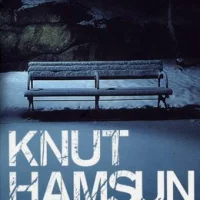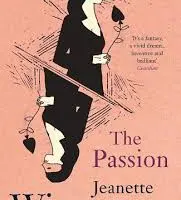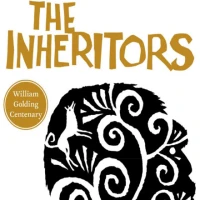The Pets, by Bragi Ólafsson and translated by Janice Balfour
Comic novels struggle to be taken seriously. Howard Jacobson recently won the Booker of course, but that’s a definite exception and as Jacobson himself noted he’d been waiting a fair while for the honour.
The book I’m currently reading is JG Farrell’s Troubles. It’s brilliant (so far anyway). It’s extremely well written and it’s extremely funny too. Why shouldn’t it be? There’s no conflict between quality and comedy.
The Pets is a story about a man, Emil, who returns home from a flight abroad to find an old acquaintance waiting for him. It’s not a welcome reunion. What do you do though when you don’t feel able to say to someone that actually you’d rather not talk to them? That question is the essence of the whole book.
Really it’s no small risk one takes, boarding an airplane. For three hours (not to mention on longer trips) one is locked in a tight, uncomfortable space, way above any civilization, with unpredictable people, who could drink themselves senseless or spill their food and drink over you—and the only place of salvation is the toilet.
The flight’s as bad as Emil fears. He’s seated next to a man called Armann Valur who refuses to take the hint when Emil plugs in headphones. Armann insists on conversation but he has nothing interesting to say. It’s not all bad though because an old object of Emil’s desire, Greta, is also on the flight.
Emil met Greta years ago when they were both teenagers. He saw her slip into a bedroom with a boy at a party and come out later with tousled hair. He wanted her but never got her. Now he has another chance – they fall into conversation and she agrees to visit him at home later that night. He doesn’t mention that he already has a girlfriend. He was feeling a bit ambivalent about that relationship anyway.
When he does get home though he gets some disturbing news. A man came round looking for him earlier wearing an anorak and carrying a plastic bag full of beer. He soon realises who that man was. Years ago Emil housesat in London for a friend of his father’s. Emil took along a coworker from home that he’d got to know – Havard. It was only later he realised that Havard had some serious psychological problems.
I haven’t heard from Havard for about five years, since we sat in the kitchen on Brooke Road in Stoke Newington and I gave him four hundred pounds to go away. Go away as far as possible, much further than just out of London, preferably to another country. And he said—with a grin fueled by the two or three pints of Special Brew he had drunk before lunch—that if I could give him four hundred more then he would never show his face again.
Emil didn’t give him the four hundred more. He should have.
Soon after Emil arrives home Havard returns. Emil doesn’t want to see him so he pretends he’s not in, and when Havard climbs through the window that means Emil has to keep pretending not to be home or explain why he didn’t answer the door. Emil hides under the bed. Havard decides to wait, and in the meantime invites some people over.
Emil isn’t really a bad man, but he is a bit of a coward. His girlfriend wants them to have a more serious commitment to each other. He’s not sure about that, but he doesn’t want to say that to her. He doesn’t pick up the gifts she asked for in London but he doesn’t break up with her either. Armann is a pestering bore, but Emil doesn’t want to tell him to shut up. Havard is profoundly disturbed and potentially dangerous, but all those years ago back in Stoke Newington Emil ignored all the signs until it was too late.
Tragicomedy is tricky stuff, but that’s what’s happening here. Emil doesn’t really deserve to be trapped under a bed as increasing numbers of people come into his home, drink his duty free alcohol and criticise his music collection. Then again, the pets didn’t deserve what Havard did to them either:
For some reason he thought it was highly appropriate to play the ukulele for the iguana. It was meant to be some kind of “Galapagos atmosphere,” as he called it, but the sound he produced was as sad as the fate the Mexican iguana was to meet three weeks later.
I love that quote. It’s so foreboding and yet so absurd at the same time. That’s the essence of this novel. There’s a vein of menace that runs through much of it, but it’s coupled with pathos (Emil, Armann and Havard are all in their different ways a bit pathetic) and Emil’s compromises are ones that most of us make to some degree.
When I was a kid my parents routinely pretended not to be home to unwelcome visitors. We’d sit there, unmoving, waiting for whoever was outside to go away. Often the TV would be hurriedly switched off. Sometimes we sat for a long time, because whoever was outside had heard the TV being switched off and was annoyed at being ignored and so kept on banging to be let in.
I’ve tried to ignore people on planes by focusing on a book, but then put it down when someone clearly wanted to talk. I’ve preferred to be polite rather than assertive. That’s not even necessarily a bad thing. Is my desire to be left alone really more important than someone else’s desire for a bit of company? Is it altruism though that’s motivating me, or fear of seeming rude?
Most of us I suspect have known people who knew their relationships weren’t working out but didn’t want to be responsible for the breakup. I can understand that (though I’ve seen it result in some very unpleasant passive-aggressive behaviour). I’ve been on both sides of that conversation and while being dumped is no fun at all at least afterwards you can blame the other person. If you’re the one doing the dumping it’s hard to feel good about yourself.
Some people, like Havard, never worry about social embarassment. They never pretend to be out, or pretend something is going ok when it isn’t. Others, like Emil, would rather hide how they feel than risk unpleasantness. Most of us are somewhere in between. Here Ólafsson takes the two extremes and brings them together. Havard is a sort of anti-Emil. His nemesis.
The line between tragedy and farce is always narrow. In a way it’s a question of importance. If what’s at stake really matters then it’s tragedy. If it all ends in blood and ruin it’s probably not going to be that funny (not intentionally so anyway, The Duchess of Malfi though can go that way). If what’s at stake is petty, but important to the characters, that’s farce.
I heard about The Pets over at Guy Savage’s blog here. I don’t think it’s a well known novel in English, and I think it should be. While writing this I also found a review by Stewart of Booklit here which is worth reading for a still positive but less enthusiastic perspective.














